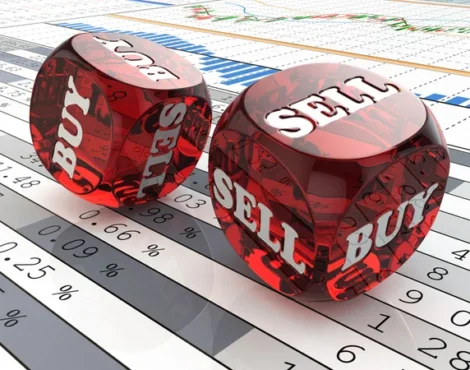Forex and crypto trading are both fast-paced and highly volatile markets that can bring significant stress to traders. The pressure to make quick decisions, manage complex trades, and deal with the constant ups and downs of the market can take a toll on a trader’s mental and emotional well-being. Managing stress is essential for maintaining a clear head and making rational decisions in the trading world. In this article, we’ll explore various strategies and techniques for managing stress as a forex and crypto trader.
Understanding Forex and Crypto Stress
The stress experienced by forex and crypto traders comes from the high levels of uncertainty and risk associated with these markets. Traders often face long hours, staring at screens filled with charts and numbers, trying to make sense of the market’s movements. The fear of loss and the pressure to perform can lead to chronic stress, which can impact a trader’s health and decision-making abilities.
Forex and crypto stress can also stem from the 24/7 nature of these markets. Unlike traditional stock markets, which have set trading hours, forex and crypto markets operate around the clock. This can create a sense of never being “off-duty,” making it difficult for traders to disconnect and recharge.
To effectively manage stress, traders must first understand the unique challenges of forex and crypto trading. This includes acknowledging the potential for high stress levels, recognizing the factors that contribute to it, and understanding how it can affect their trading performance.
Recognizing the Signs of Trading Stress
- Traders can experience a range of stress-related symptoms, both physical and psychological. Physically, traders may notice increased heart rate, headaches, sleep disturbances, or muscle tension. These symptoms can be signals that stress levels are becoming unmanageable and may need to be addressed.
- Psychologically, trading stress can manifest as anxiety, irritability, difficulty concentrating, or feelings of overwhelm. Traders may also experience self-doubt or a fear of failure, which can further exacerbate their stress levels.
- It’s important for traders to be aware of these signs and take them seriously. Recognizing stress early on can help prevent more severe issues down the line and ensure that traders are taking proactive steps to manage their well-being.
Developing a Stress Management Plan
Creating a stress management plan is an essential step in maintaining a healthy trading mindset. This plan should include specific strategies to address stress, such as regular exercise, healthy eating habits, and sufficient sleep.
Additionally, traders should set realistic goals for themselves, both in terms of their trading performance and their stress management efforts. It’s important to be patient and understand that managing stress is an ongoing process that requires consistent effort.
A stress management plan might also involve setting clear boundaries around trading. This could mean establishing specific trading hours and sticking to them, taking regular breaks throughout the trading day, and avoiding overexposure to market news and analysis that may increase anxiety.
Incorporating Mindfulness in Trading
- Mindfulness, the practice of staying present and focused on the current moment, can be a powerful tool for managing stress in trading. Mindful trading involves observing the market with a clear and calm mindset, rather than reacting emotionally to every fluctuation.
- Traders can incorporate mindfulness by starting their day with a brief meditation session, taking deep breaths before executing trades, or simply taking a moment to center themselves throughout the day. Consistent mindfulness practice has been shown to reduce stress and improve overall well-being.
- By staying mindful, traders can maintain a levelheaded approach, even during periods of high volatility. This can lead to better decision-making and ultimately improve trading performance.
Strategies for Managing Trading Anxiety

- There are several strategies traders can employ to manage their anxiety related to trading. One of the most effective approaches is to develop a solid trading plan and stick to it. This involves setting clear entry and exit points, risk management rules, and sticking to them no matter how the market is performing.
- Another strategy is to limit exposure to news and social media, which can often exacerbate anxiety. Traders should focus on reliable sources of information and avoid getting caught up in market rumors or hype.
- Visualization techniques can also be helpful. Traders can imagine themselves successfully executing their trades, which can help build confidence and reduce anxiety.
The Importance of Taking Breaks
Taking regular breaks from trading is essential for preventing burnout and maintaining a balanced lifestyle. This can involve stepping away from the computer for short periods throughout the day, allocating specific days off from trading, or even taking extended vacations to fully recharge.
Breaks also provide an opportunity for traders to reflect on their performance, identify areas of improvement, and adjust their strategies accordingly. This reflection can help traders approach the market with a fresh perspective and renewed focus.
It’s crucial for traders to understand that taking breaks does not imply weakness or a lack of dedication. On the contrary, it demonstrates a commitment to long-term success by prioritizing health and well-being.
Building a Support System for Traders
Having a support system in place can make a significant difference in managing stress as a trader. This can include connecting with other traders to share experiences and strategies, seeking out mentors, or joining trading communities or forums.
Family and friends can also play a vital role in providing emotional support. Traders should not be afraid to reach out for help if they are feeling overwhelmed or need someone to talk to about their stresses.
Professional support, such as therapy or coaching, can also be beneficial for traders looking to improve their stress management skills. These resources can provide personalized guidance and help traders develop effective coping mechanisms.
Evaluating and Adjusting Your Approach
Traders should frequently evaluate their stress management strategies and adjust their approach as needed. This might involve trying new techniques, adjusting trading hours, or reevaluating goals and expectations to ensure they are realistic and achievable.
It’s important to recognize that what works for one trader may not work for another. Experimentation and flexibility are key to finding the right balance and developing a stress management plan tailored to an individual’s needs.
Traders should also be open to learning from their experiences and adjusting their trading approach to reduce stress. This might include refining strategies, implementing new tools, or seeking additional education to enhance skills.
Managing stress is a crucial aspect of forex and crypto trading. By understanding the sources of stress, recognizing the signs, and developing a tailored stress management plan, traders can maintain their mental and emotional health while navigating the complexities of the market. Incorporating mindfulness, taking regular breaks, building a support system, and continuously evaluating and adjusting their approach are all essential components of a successful stress management strategy. With the right tools and mindset, traders can achieve long-term success and enjoy a fulfilling trading career.



